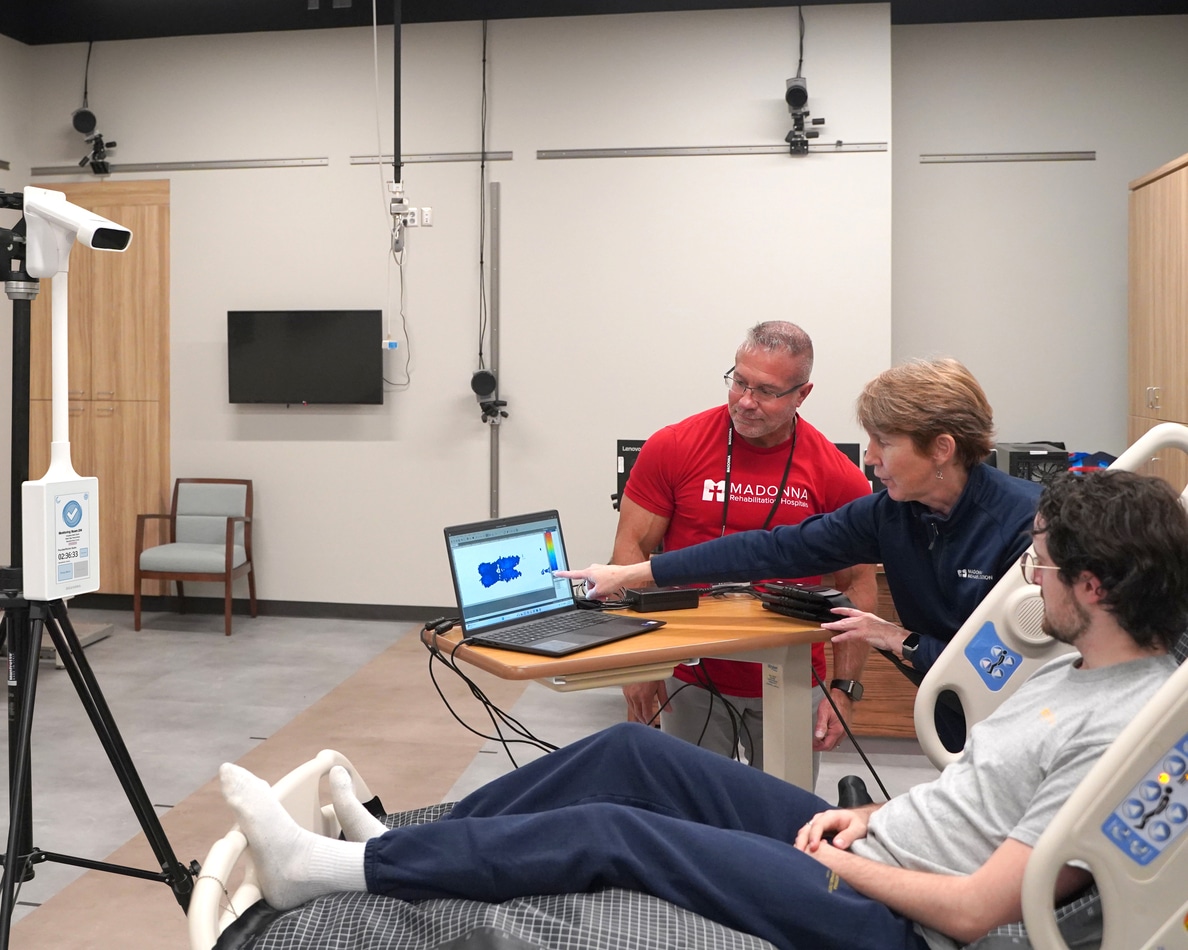Ocuvera, a healthcare technology company based in Lincoln, Nebraska, has been awarded a two-year Small Business Innovation Research (SBIR) Phase II grant to further develop a Digital Pressure Injury Monitoring (DPIM) system that helps nurses prevent and track hospital-acquired pressure injuries (HAPIs).
This grant builds on work begun in 2020, when the National Institute of Nursing Research (NINR) awarded Phase I funding. In that phase, Ocuvera collaborated with Madonna Rehabilitation Hospitals, a nationally recognized leader in rehabilitation care and pressure injury prevention, and Madonna’s Research Institute team, to collect data from patients and clinicians. Those insights were used to develop the technology’s core features and algorithms. The project successfully demonstrated proof of concept and generated critical feedback from nurses on how the system could best support their workflow.
HAPIs cost the U.S. healthcare system $26.8 billion annually.
“Hospital-acquired pressure injuries are painful, costly and preventable,” Lucas Sabalka, PhD, Ocuvera chief data and analytics officer, said. “We can now extend our development of advanced monitoring systems to pressure injury prevention, giving nurses a new tool to protect patients.”
Phase II funding will support development of a fully functional prototype through refinement of algorithms and real-world testing at Madonna Rehabilitation Hospitals.
“This Phase II award validates the promise of our technology and accelerates our path toward commercialization, now expected by 2027,” Steve Kiene, Ocuvera CEO, said. “We’re grateful to NINR and our clinical partners for making it possible to build a product grounded in clinical input that can make a meaningful difference for nurses and their patients.”
As the system advances toward clinical deployment, Madonna’s nurses and research experts will continue playing a central role in shaping its development.
“At Madonna, safeguarding against pressure injuries is a daily priority,” Terasa Farlin, BSN, RN, CRRN, Madonna vice president of patient care and chief nursing officer, said. “By working with Ocuvera, our nurses can help shape technology that supports their care and improves patient outcomes. We are excited to continue as a partner in developing solutions that make a real difference at the bedside.”
Madonna’s Research Institute will initially use their state-of-the-art 3D motion analysis and pressure mapping technologies to validate system measurements and guide refinement of key features. In the next phase, patients recovering from a wide range of conditions including brain injuries, spinal cord injuries, burns and strokes, will join clinicians in testing the fully functional Ocuvera system. Their real-world experiences and feedback will help the team further improve the system’s technology, enhance usability and ensure it meets the needs of both patients and healthcare providers.
“Pressure injuries are a serious issue in hospitals, as they can slow recovery, make rehabilitation more difficult and take a toll on patients’ morale,” Dr. Judy Burnfield, PT, PhD, Madonna vice president of research, said. “We’re proud to join forces with our Ocuvera colleagues in this next phase of product development, working together to ensure the technology delivers meaningful impact for inpatients and the clinicians who support them.”
As testing expands, both teams are focused on ensuring the system translates seamlessly from research to bedside practice.
“This collaboration represents a significant stride toward more personalized and effective rehabilitation solutions for reducing hospital-acquired pressure injuries,” Burnfield stated.
Ocuvera is a healthcare technology company headquartered in Lincoln, Nebraska whose mission is to create innovative tools that empower nurses to provide better patient care. The company develops advanced monitoring systems that use artificial intelligence to reduce preventable harm and improve patient outcomes. Learn more at www.ocuvera.com
Research discussed in this publication was supported by the National Institute of Nursing Research of the National Institutes of Health (NIH) under Award Number R44NR019556. Research and development of the Ocuvera fall prevention system was supported by NIH awards 1R43AG069646-01 and 1R43NR019556-01, the United States Department of Agriculture project 1012701, and Nebraska Department of Development awards 17-01-036, 19-01-130 and 22-01-074. The content is solely the responsibility of the authors and does not necessarily represent the official views of the National Institutes of Health





